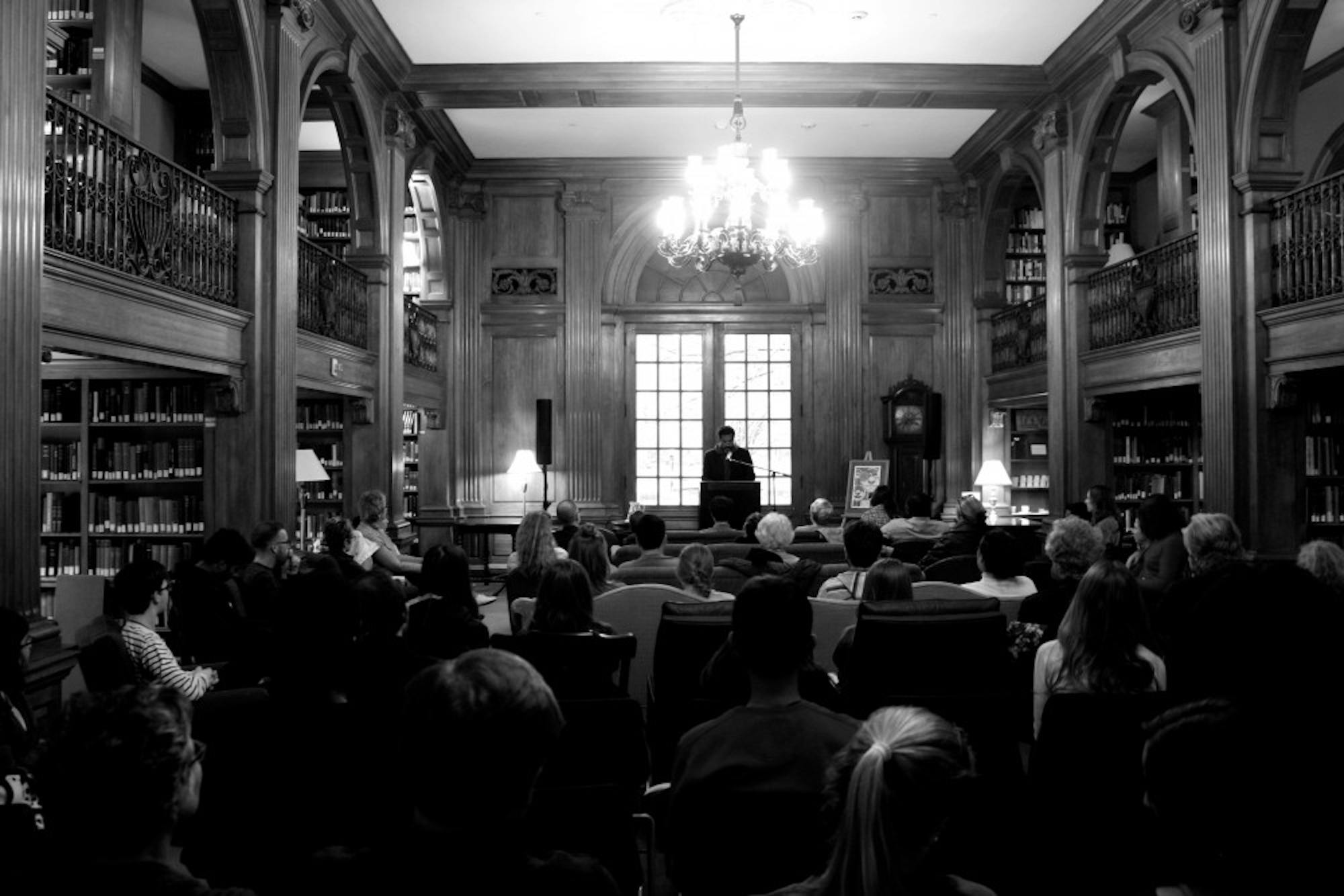Pulitzer Prize-winning poet Gregory Pardlo delivered a much anticipated reading of his poems to a packed Sanborn House library yesterday afternoon. The excitement in the brightly-lit library offset any gloominess left present in the air after an afternoon onslaught of rain. The event began on time, with students antsy to take notes on the discussion and professors enthusiastically looking forward to picking Pardlo’s brain about his work.
English professor Vievee Francis, the host of the event and a close friend of Pardlo, introduced the poet to the audience by recounting the day he called her to inform her that he won the 2015 Pulitzer Prize for Poetry for his collection “Digest”, leaving her in a temporary state of disbelief.
“I hung up on him,” she told the amused audience.
Her initial disbelief was warranted, as “Digest” is only Pardlo’s second book. Francis emphasised the ease with which Pardlo approaches his subject matter. She noted that his collection often inspired surprise from readers, who often expect African American authors to be upfront about their daily experiences.
“The book does not scream its blackness. It aims to simply be [...] He hence upturns almost every stereotype,” Francis said.
Pardlo, evidently touched by the introduction, expressed his gratefulness as he began the reading. He was also surprised that many students were present at the event, especially considering he had been unable to attend Francis’ creative writing course earlier that morning. Pardlo’s reputation was a contributing factor to the large student presence at the event.
“You don’t see poets who have won such grand prizes appearing at such intimate events very often,” Summer Jing ’20, a member of the audience, said.
The writer began the event by reading poems from “Digest,” the bulk of which are inspired by his personal life and are set in various urban areas, including New York, Copenhagen, Denmark and his native New Jersey. Before reading each poem, he gave a short description of how it was created, giving the audience an insight into the mind of a poet at work.
One poem in particular stood out. A peculiar email Pardlo received from his aunt inspired the work titled “Attachment: Atlantic City Pimp.” Even though the poem was quite specific in its details, it captured the complex interactions between family members, resonating with many in the audience.
Family was a recurring element in the poems that Pardlo read. “Raisin” focused on Pardlo’s 12-year-old cousin. In the poem, Pardlo narrates how he “dragged” his cousin to see the Broadway production of “A Raisin in the Sun” believing that the casting of P. Diddy , who he calls in his poem a “hip-hop mogul and rapping bachelor,” as the starring role would be a suitable incentive for the child. The incorporation of contemporary pop culture icons like P. Diddy and 50 Cent and past icons like Ricky Scaggs, in his work enabled Pardlo to appeal to both younger and older members of the audience.
In his reading, Pardlo also included poems that reflect his penchant for playing around with form and “working with conventions [of structure].” One such highlight was “Ghosts in the Machine: Synergy and the Dialogic System,” which is structured off of the course descriptions that students read. His poem describes a course in which students are encouraged to study the “intercourse” between the numbers zero and one. During the question and answer session, one student inquired if Pardlo’s use of new structures in his poetry make his ideas less understandable to readers.
“Readers understand my poems wrong all the time,” Pardlo answered, causing the audience to erupt in laughter.
Pardlo’s funny confessions and revelations were juxtaposed with his more serious poems about slavery and segregation. The Poetry and Prose series at Sanborn once again proved that there is indeed a mystical joy in reading in the rain.




